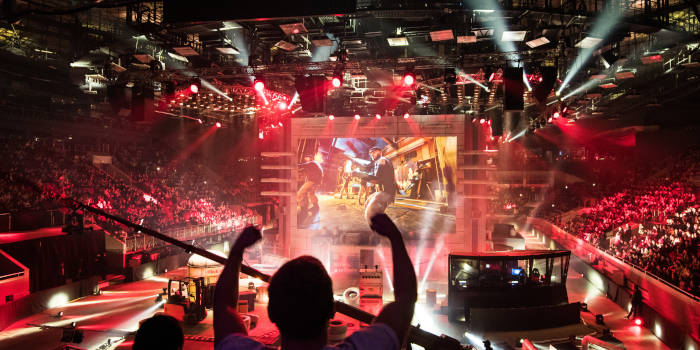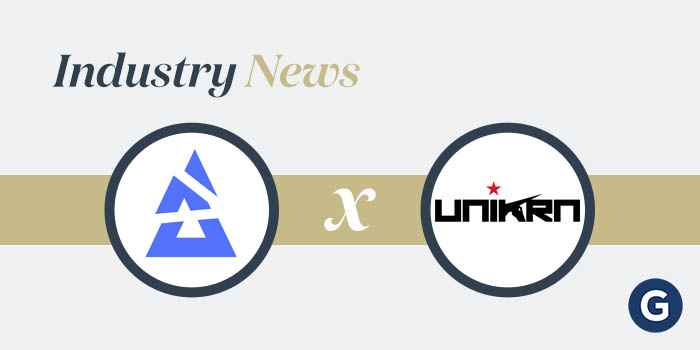Esports Fans Not Interested Enough in Games’ Integrity

- Esports integrity not much of an issue for gamers
- Sportsbooks aren’t keen on offering esports wagers
- States’ revenue from betting much lower than expected
Esports integrity doesn’t turn out to be much of an issue for fans, a new study has found out. This dims the prospect of introducing esports betting in earnest.
Is Cheating a Serious Issue in Esports?
The march towards integrity in esports has already started with the establishment of the Esports Integrity Coalition (ESIC) chaired by Ian Smith. A new study co-authored by Brett Abarbanel, head of research at the University of Nevada, Las Vegas’s International Gaming Institute, established that esports fans are mostly not interested in whether a player or a team has set out to lose deliberately at the onset of a game.
The reports was conducted as part of an effort to establish whether esports can be included in the sprawling sports betting climate in the U.S., examining players’ attitude towards match-fixing. With the latest results on the table, pushing for legalized esports betting in the United States becomes more challenging.
It could help to think about esports as collegiate sports where the unknowns are too many for sportsbooks and integrity bodies to verify whether certain outcomes are plausible, not to mention the issue of integrity whereby athletes are tempted to sacrifice performance to secure under-the-table payment.
Yet, adding esports to the gambling and casino landscape is important for businesses looking to connect with younger audiences, many attendants of last week’s International Conference on Gambling and Risk Taking noted.
One of the most notable recent accomplishments that combine casino facilities and esports is the HyperX Arena that opened on Mach 22, 2018. The 30,000-sq ft arena has hosted multiple high-profile competitions, including the inaugural Fortnite tournament featuring Tyler “Ninja” Blevins, a Fortnite player who turned millionaire by streaming on Twitch and participating in various events and campaigns.
If You Aren’t Cheating, You Aren’t Trying Hard Enough
The research has highlighted an important issue which puts any attempts to legalize esports betting under a serious question. Intentionally throwing a game hasn’t been known to be the case in high level esports, but the times when teenagers played long and hard to win are long gone.
Cloud9 is thrilled to be embarking on a journey of innovation alongside our Official Technology and Performance Analytics Partner, @Microsoft! Welcome to the #C9Fam!
— Cloud9 (@Cloud9) May 31, 2019
ℹ️ Learn more: https://t.co/W14sFCgDbN
📰 Read @Microsoft's latest In Culture story: https://t.co/T8AviHXjJp pic.twitter.com/7J5bt2aqG8
At least in their hectic, unguided way. Today, esports organizations’ net worth amounts to millions and important partnership deals are signed at every corner to make sure that esports players are doing their best to win.
In the NCAA, for example, athletes would under-perform to get paid, and this is precisely what has stopped collegiate sports betting from taking off in the U.S. Yet, regulating the sports betting industry poses significant challenges. While state lawmakers avoid giving their nod to collegiate sports betting, athletes can still turn to offshore sportsbooks that are not bound to verify the integrity of the contest by a license.
Particularly in the case of esports betting, Abarbanel and her co-author Mark Johnson from the University of Alberta in Canada, have drawn the following conclusion:
“Results indicate that esports viewers are not deeply concerned by match-fixing. In addition, spectators typically view gambling as a cause of corruption among competitors, but also understand and accept some elements of the practice.”
Meanwhile the interest in providing esports betting options hasn’t been very high among licensed operators. Unikrn, the largest esports betting platform in the U.S., has acquired a Isle of Man isle to offer cryptocurrency-powered betting.
Disillusion with Sports Betting among State Lawmakers
While esports fans are still undecided whether the integrity of the contest matters, lawmakers and states are disillusioned with the windfall sports betting has been able to generate. Places like Las Vegas take in $4 billion in sports wagers annually, which made it possible to garner the political support in Nevada.
One thing lawmakers have failed to acknowledge, despite the repeated warnings of sportsbooks, is that much of that amount is paid back to winning customers and only the remainder is taxed.
With states’ pursue not swelling by as much as originally expected, alternatives are looked into. However, there is no rush to introduce esports betting options.
Mike made his mark on the industry at a young age as a consultant to companies that would grow to become regulators. Now he dedicates his weekdays to his new project a the lead editor of GamblingNews.com, aiming to educate the masses on the latest developments in the gambling circuit.



